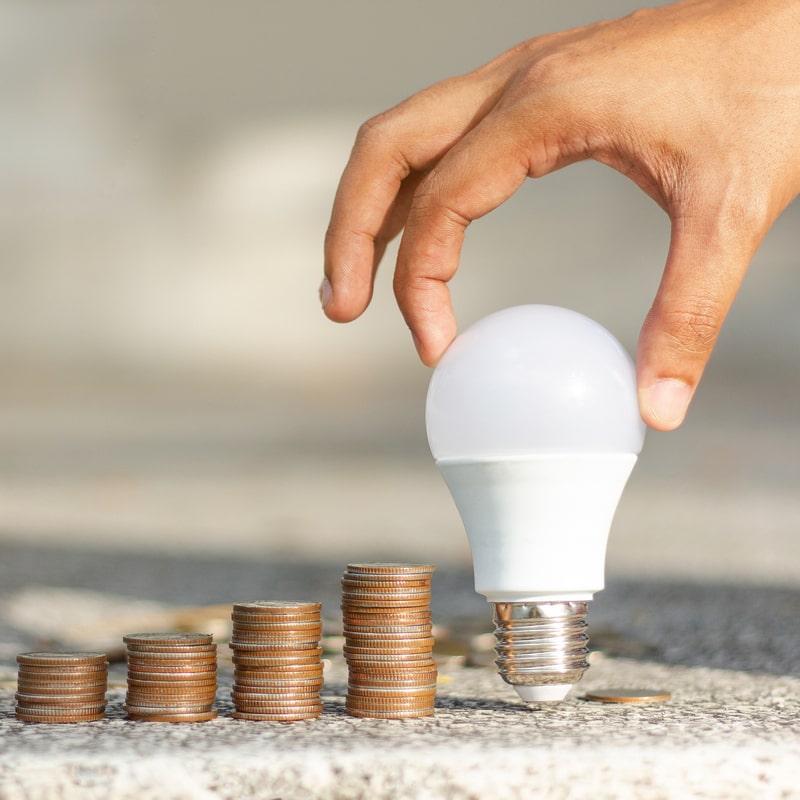
Reducing the amount of electricity bill is something that almost every family thinks about quite often. While it is common to think that the month when there are more outages, the bill should come lower as less electricity was consumed, this inference might not always be true. Inverter power consumption can also be a factor in how to reduce the electricity bill.
This might make you think how does an inverter increase the electricity bill if it powers up appliances when the main power is gone? Well, an inverter stores the electricity provided by the main grid in DC form and then converts it into usable AC when the power is cut off. Hence it consumes a fair bit of electricity and an inefficient inverter can end up increasing your electricity bill. So how do you reduce the current bill?
What Makes an Inverter Inefficient?
No inverter can achieve 100% efficiency. While inefficient materials, system design, outside temperature and other things factor as well, it is the conversion losses that makes the inverter lose its efficiency. Converting AC to DC and then to AC again leads to a lot of power being lost thus reducing the efficiency of the inverter.
So the Key Here is – Minimising Conversion Losses and Reduce Electricity Bill
Now that you have understood that there is power consumed in providing a power back-up, we look at how to minimize conversion losses. Reduction in losses will have a positive impact on your monthly electricity bill. Let us understand the conversion processes briefly so that minimizing losses is understood. This will help you appreciate our claim that Genus inverters minimize your electricity bill.
- The batteries can store electricity only in the form of direct current (DC) while the grid power is in the form of alternating current (AC). Your inverter first converts the AC to DC to charge the batteries and store energy (or power, or electricity).
- When mains fail, the inverter immediately converts this stored DC back to AC since your appliances can only run on AC.
Why Genus products are Superior to Reduce Electricity Bill?
AC to DC:
The conversion loss here is reduced by using superior copper transformers compared to cheaper aluminum. You would know that copper is a better conductor of electricity; though it costs more, our Proton range uses this to repay you in lower electricity consumption.
DC to AC:
There can be a wide variation in efficiency here ranging from 40% to 95%. We call this the Power Factor. Put simply; it is the proportion of the overall voltage delivered in phase (in harmony) with the incoming power line. The more the harmony, the better your appliances run, the more the efficiency and the lower the bills (immediate, as well as long-term life of appliances). Let us understand this some more:
Also Read: Generator v/s Inverter Back-up: Pros and Cons
Square Wave:
This is the cheapest, yielding an efficiency of around 40%
This is suitable for very basic requirements of lighting and heating, though the hum of the appliances when running. Have you noticed your neighbor’s fan humming since it runs on an old-fashioned inverter? You can go for this only if there is no laptop or mobile phone to be charged during an outage. Today, even tube lights come with a ballast—this inverter type is not recommended.
Modified Sine Wave:
Our Thunder range is priced as the square wave but gives 90% efficiency
Yes, that is the wonder of our technology. With the Thunder, you can charge your laptop, mobile and run your appliances. The other piece of good news is that it is compatible with different battery types like lead-acid and tubular.
Pure Sine Wave:
hi-tech for sophisticated appliances, requiring 93-97% efficiency
Go for our Proton Q or the latest Proton K. Pure sine wave inverters means there would be no issues with your, RO water purifier, laser printer or computer screen, small water motors, room coolers, etc. This range charges even at low incoming voltage.
Now if you are still wondering how to reduce power consumption and how to save electricity at home in India, use Genus inverters that provide 90% efficiency when it comes to power conversion and are more efficient in the long run.
